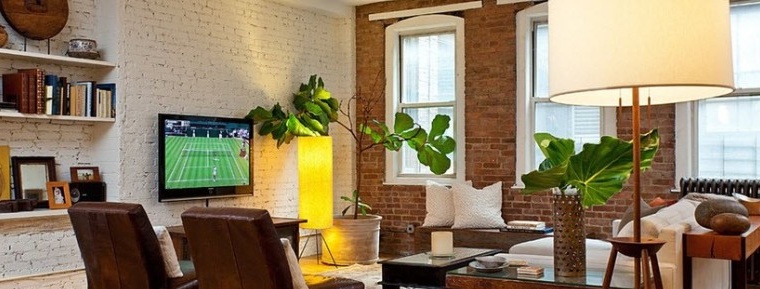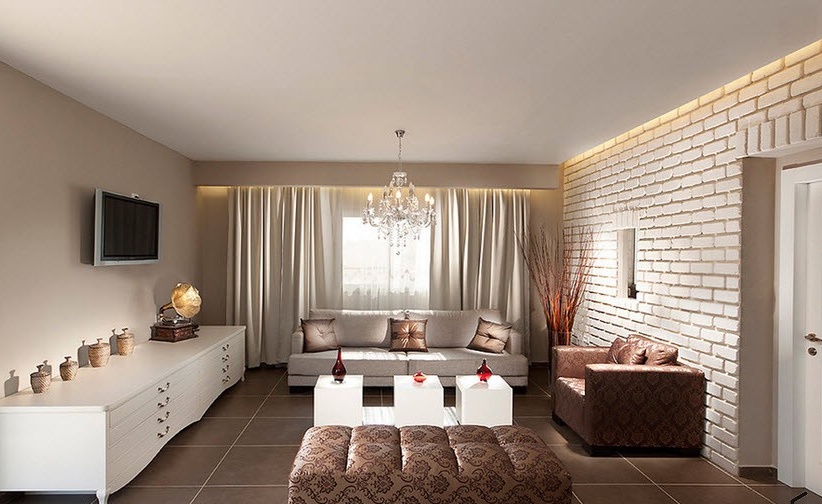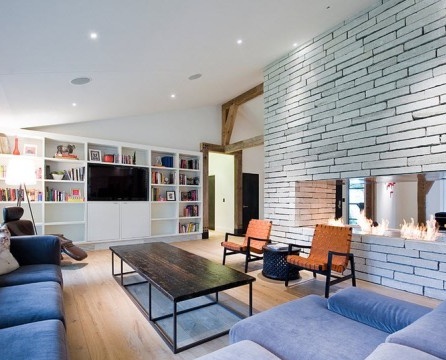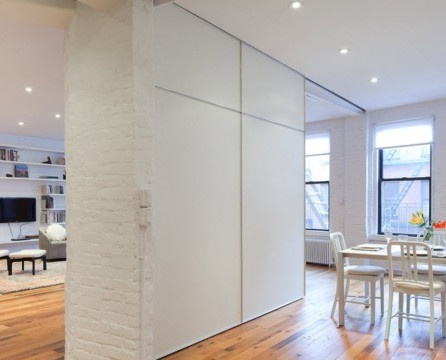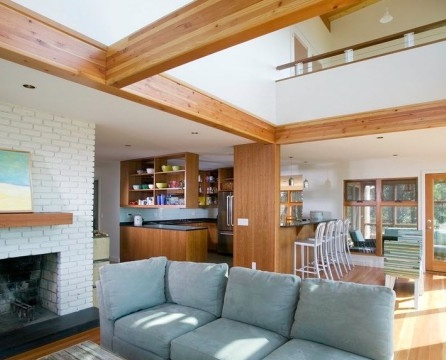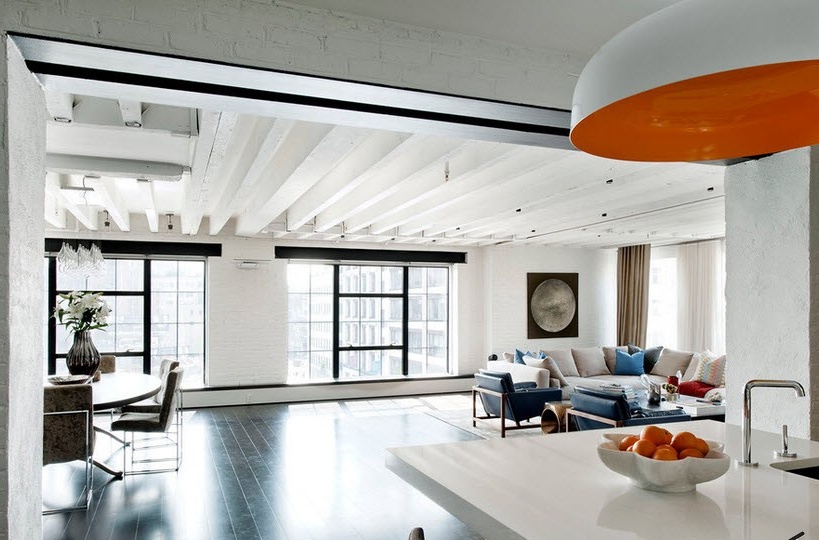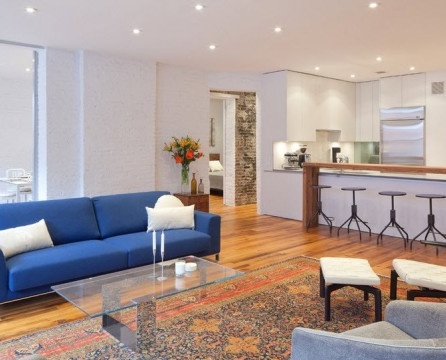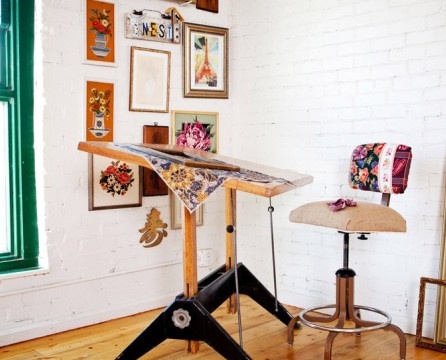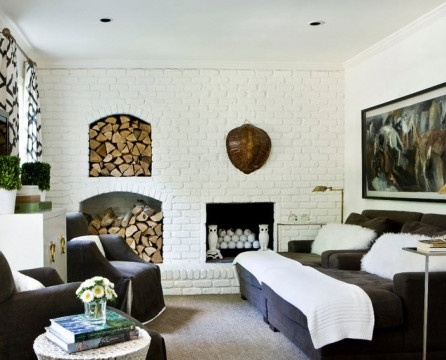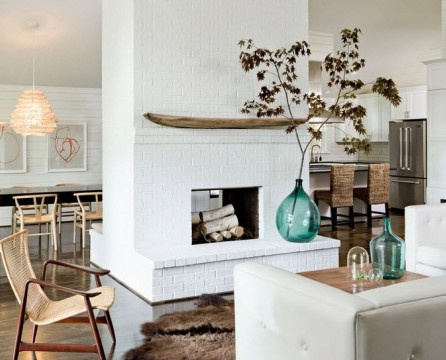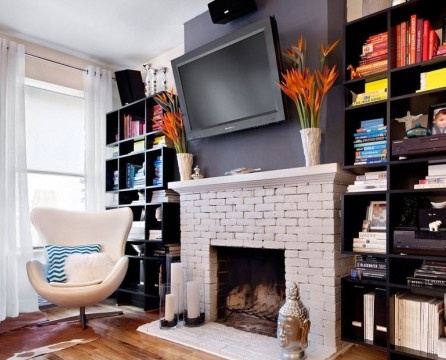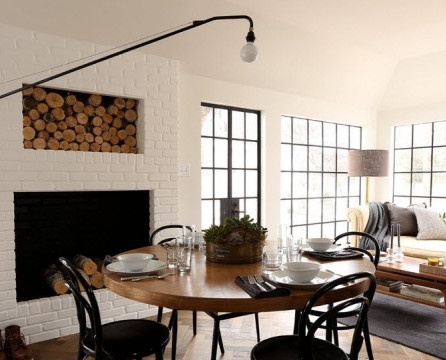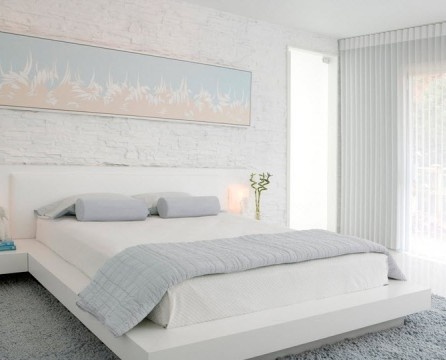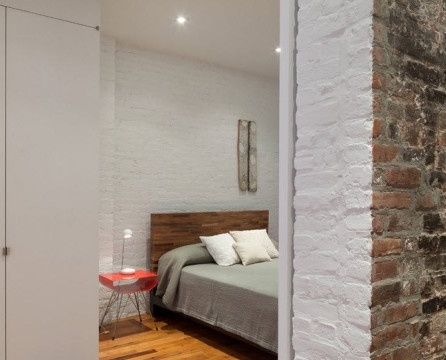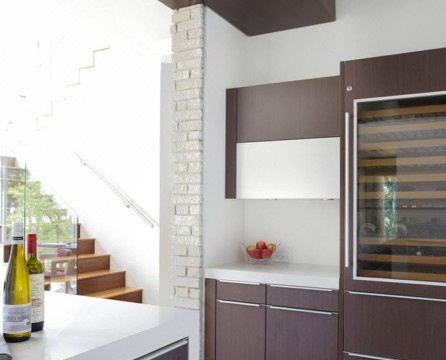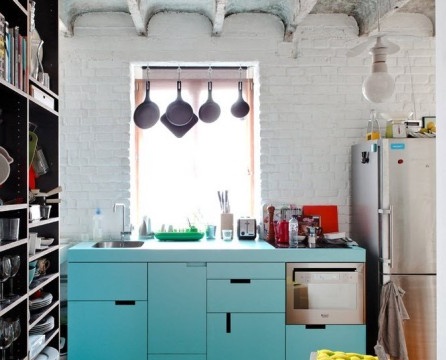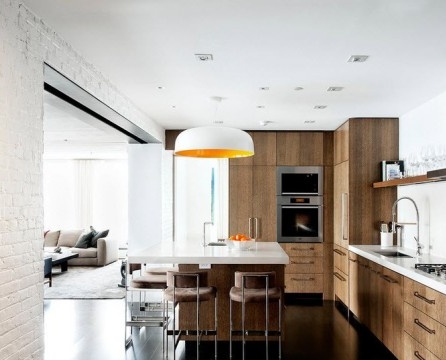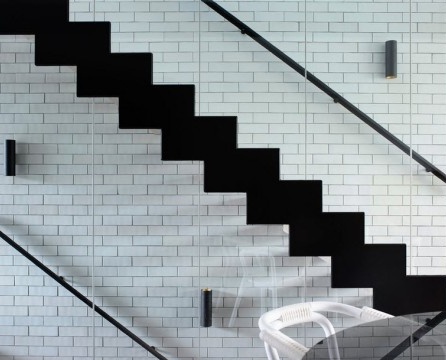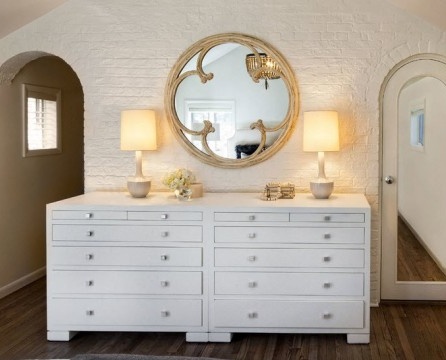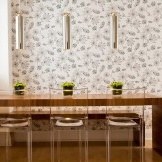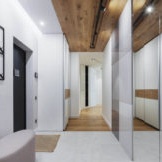White brick in the interior: exotic of the Middle Ages today
Any design idea can be embodied in a modern interior. This can be easily verified by visiting the house, which was decorated with decorative brickwork.
The very word "brick" was brought to Russia by Turkic peoples - before that, the concept of "plinth" was used. This artificial stone is made from mineral materials and has all the properties of a real stone: strength, moisture resistance and frost resistance. The composition of red bricks, called ceramic, includes mainly clay. White consists of sand and lime. This mixture is usually called silicate - hence the name of this type of finishing material.
When designing rooms, many designers prefer silicate brick, since it is much stronger than ceramic. In addition, this material has good soundproofing characteristics and is famous for its environmental friendliness, as it is made from pure natural raw materials. These qualities make it possible to use white brick in the construction of internal partitions, for decorating walls, facing fireplaces and columns, and even when decorating furniture.
Where did the fashion for brickwork in the interior come from?
Brick decoration in the interior of Russian apartments can be met infrequently - this direction of design is only gaining its popularity in our country. But in the states of Europe and America, brickwork became fashionable in the middle of the 20th century. It is believed that the basis of such a fashionable trend now is the settlement of industrial buildings in New York by poor American youth. Financial difficulties of that time did not allow homeowners to finish the premises, so the walls remained in their original form.
The trend of turning old factory premises into residential buildings continued in subsequent years. However, due to the fact that not everyone can buy an old industrial building, the idea of creating artificial brick walls and partitions arose among designers. Now this direction is developing successfully. Decorative brickwork is used with great success in the design of interiors and country houses, and city apartments. In recent years, the use of this material has become associated not only with the specifics of the decoration of former industrial areas, but also with other areas of design.
In addition to the loft style (from the American word loft - an abandoned room of a former factory, converted into housing), the use of bricks is typical for interiors in the style of minimalism, country and Gothic.
The rough masonry in the room, which provides for minimalism, emphasizes its approach to the natural urban environment. Country style initially implies the use of bricks in the decoration of suburban cottages and mansions - now even many owners of urban housing seek to create a peculiar village flavor in their apartments. Gothic style is known to us for the architecture of medieval Europe. There was no special wall decoration at that time. Today, this direction of design is widely represented by masonry adorning lancet arches, columns and internal walls of mansions.
Brickwork in the interior: ways to create it
Natural brick wall
You can use the simplest and most natural way - to bring a real brick wall into proper form. This option is perfect for the happy owners of an apartment in a new building. In this case, one of the walls can be left untouched, preserving the original brickwork.Even if a good quality brick was used in the construction, and the quality of the laying does not inspire concern, there is still no way to do without restoration work. It is necessary to remove traces of cement and salt stains, grind the surface and wipe all the seams with a special grout or putty. Upon completion of all these events, the brick wall is covered with a special varnish on a water basis.
Brickwork Wallpaper
You can simulate masonry using special wallpaper. This option is not too expensive, however, many homeowners consider decorative wallpaper a brick remnant. And completely in vain! In stores you can find many varieties of such coatings. Among them there are textured wallpaper for painting and finishing materials that do not require coloring, which imitate not only the texture, but also all the color nuances of a real brick.
Facing brick
In some cases, it is worth using a brick for facing surfaces. This variety is most suitable for finishing work, since such a material is much thinner than ordinary building bricks. In addition, it weighs less, which is very appreciated when facing thin walls. Such material has a very wide color gamut and texture. The most spectacular, of course, is a brick, molded by hand. Traces of sand on its surface gives each brick its originality, but at the same time increase its value.
Brick imitation tile
You may already have encountered this decorative material called brick veneer. Such a brick is similar in characteristics to the facing one - many do not even understand what the difference is. In fact, the tile has a thinner base than the facing brick. This decorative material is laid like any ordinary tile.
White brickwork: accents throughout the apartment
When creating interiors, brick walls are often used to create peculiar accents. Most often, one of the walls stands out - the space behind the TV or sofa in the living room, the area at the head of the bed in the bedroom, or the area near the dining table in the kitchen. Thanks to the right accents, these parts of the room attract attention in the first place.
Decorative white brick is excellently combined with surfaces from various building materials, for example, with plaster and glass, as well as with chrome and metal products. Therefore, white brick walls can be included in the interior of a variety of rooms. This material in interiors is most often combined with walls of the same color. The light shade of the brick gives any room additional volume and airiness. In order to avoid the effect of the hospital room, it is recommended to “dilute” the interior with bright details and accessories.
For facing the guest room, you can take away not one, but two whole walls. An integral element of the modern living room is the fireplace, trimmed with white decorative material. When facing it, brick qualities such as fire resistance and cracking resistance are very useful. The entire fireplace lining can be replaced with a partial decor.
In the bedroom, under a white brick, it is enough to divert one of the walls, preferably at the head of the bed - this will greatly enliven the room and make it more comfortable.
In the kitchen, white brickwork also looks very interesting. Light brick can decorate not only the kitchen apron, but also the bar counter. This material goes well with all modern kitchen appliances.
The use of white brickwork in the lobby will visually expand the area of the room. A significant advantage of using this material in such a room is its resistance to abrasion and decay - dirty surfaces are easily cleaned and washed.
Thus, the white brick in the interior of your apartment is not only a tribute to fleeting fashion.The rooms acquire sophistication and unique style, based on practicality and convenience, and it is worth a lot.

